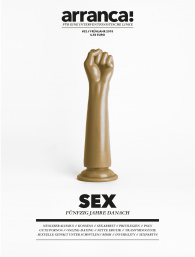Call for participation #49 - in English
Organizing debate part II: Form follows function
In #48 we promised a continuation of the organizing debate within the radical left for the upcoming edition. In between came the memorandum in Greece and the summer and autumn of migration – and likewise a new quality of German dominance in Europe. We want to collect analyses and evaluations of what needs to be done when facing these developments. Our focus is most importantly to align forms of organizing with the requirements of the political situation.
1. Some of the mechanisms which became effective in the European crisis policy e.g. in Greece, we already talked about in the arranca! edition #45 about the Euro crisis. Tomasz Konicz then for instance referred to the leading role of the BRD and escalating conflicts of interest. Both reached a new quality with the enforcement of “reforms” in Greece. What has happened there? How can the failing of Syriza be judged? Is this the end of reformism or of left policies in the EU? Can the conflict be understood as an antagonism of centre and periphery or is this also primarily a history of class struggles?
2. Another setting was offered with the flight- and migratory movements of the last months: The Frontexregime has been put into question through these movements in very practical terms. And Germany assumed once more a leading role in this “crisis”, shaking the Dublin agreement while introducing new repressions. Apart from the German dominance on the European level, a strong mobilization is taking place: Nazis and “concerned citizens” are in conflict with a culture of welcome in the face of governmental refusal of service.
3. How can we as the left in the BRD become capable of acting in this unclear terrain? Actions like Blockupy have shown possibilities of declaring solidarity with the struggles in southern Europe and of calling attention to the extortionist policy of the European institutions and the IWF. But clearly different assessments showed up within the radical left in this context, whether it should be important to bring forward a “popular leftist discourse” through societal intervention (for instance the group Social Struggles in #45) or whether one is inevitably in the “heart of the beast” and therefore – OXI – in the need to develop an antagonist resistance. Similar is the question when it comes to the German culture of welcome: Do we get involved in the existing activism or do we differentiate from bourgeois benefactors? Do we actually experience new forms of transnational solidarity with the current civil disobedience of border crossing helpers?
It is therefore necessary to ask the organizing question from the point of struggles, not only here, but also internationally. How can we gain the power of interpretation and transform the various crises to a Euro- or even German crisis? What does a political practice which takes our critique socially effective looks like? What does interventionist alliance policy looks like? Or the resistance in the heart of the beast beyond mass demonstrations and 40 years after the German autumn? What is the “contemporary internationalism” which the FelS Intersol working group demanded in #46? Building on the last edition we want to continue the discussion if and how organisations of the radical left can provide better grassroots work or how apparently cumbersome mass organisations can react flexibly towards somersaulting events as happened this summer.
We’re looking forward to your propositions and ideas to these questions and to other aspects which so far came too short. We’re especially glad to receive replies on our last edition and also welcome contributions beyond the main focus. As usual we do not want to achieve a theoretical peak but aim at socialisation of (practical-) knowledge. We invite you, to send us your proposals to arranca <at> mail.de up to the 13 th of December 2015. We need the complete articles by the 14th of January 2016.
arranca! Editors, November 2015
